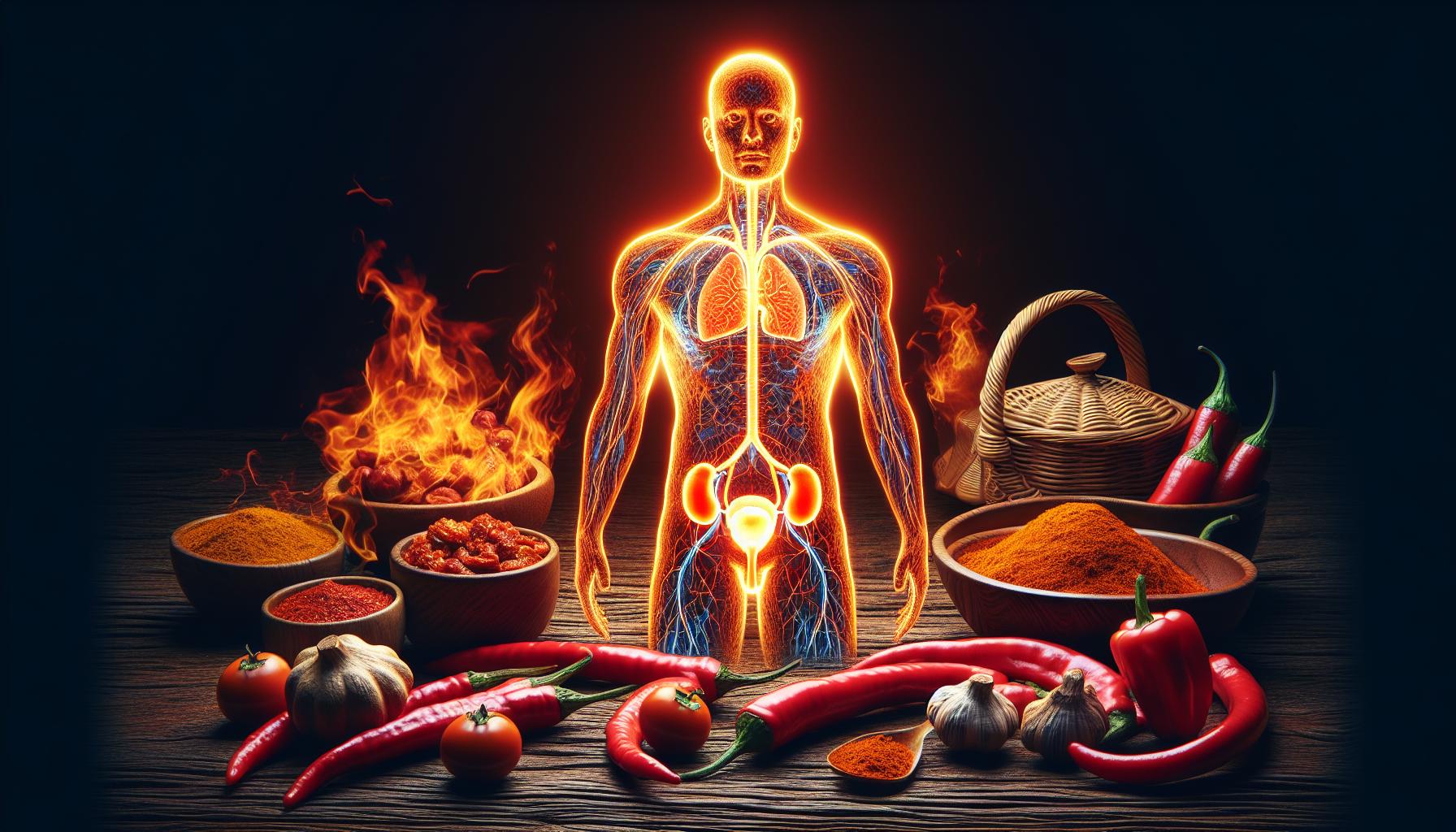Unveiling the Fiery Debate: Does Spicy Food Affect The Prostate?
When we talk about provocative cuisine, our minds naturally drift towards the red-hot realm of spicy food. Adding an explosive burst of flavor to our plates, spicy food tends to bring a heated question to the discussion table: Does spicy food affect the prostate? In a nutshell, it’s ambiguous. While some claims suggest a potential link between the two, others beg to differ. This article will delve into these varied theories, exploring the interconnection between spicy foods and the health of the prostate. Peppering the process with a sprinkle of science and a dollop of common sense, we aim to give you an informative and comprehensive view of the subject.
The Connection: Spicy Food and the Prostate
Let’s start with an intriguing paradox. While spicy food is well-known for bringing sweat to your brow and a sizzle to your mouth, it isn’t actually temperature hot. But what exactly makes spicy food, well, spicy? The credit goes to a compound called capsaicin, found in abundance in chili peppers. Capsaicin is responsible for the searing sensation associated with spicy food, and it’s this very ingredient that fuels the discussion about its impact on prostate health.
Spicy Perception of Pain: The Role of Capsaicin
One might wonder, how does capsaicin, an ordinary compound, create such extraordinary reactions in the body? The secret lies in its interaction with pain receptors. Capsaicin has an uncanny knack for triggering specific pain-sensing neurons, lending it the reputation of a gastronomic fire-starter. This sparks our next thought – could this fiery interaction have an effect on our prostate?
A Warming Trend: The Prostate and Capsaicin
Though the zing of capsaicin might seem menacing, it isn’t all fire and brimstone. Interestingly, capsaicin is also regarded as a powerful antioxidant, and some theories suggest it might even have a protective effect on the prostate. However, other theories point to an increased risk of prostate problems with heavy consumption of spicy foods. Let’s delve further into these fiery contrasts.
Pepper the Prostate: Can Capsaicin Trigger Trouble?
One must understand that eating a spicy meal is akin to walking on hot coals. The body interprets the capsaicin-induced pain as heat, affecting metabolism and fluid balance, which, in turn, might have an indirect impact on the prostate. However, these theories are highly debated and no clear consensus has been reached.
Playing It Cool: Balancing Spicy with Safety
The key with spicy foods, as with virtually anything in life, lies in the art of balance. While a culinary adventure into the world of spice can make your taste buds jump with joy, the overconsumption of spicy food may irritate the digestive system, potentially leading to symptoms that mimic those related to prostate issues.
Turn Down the Heat: Spicy Food Moderation
Given the ambiguity surrounding the link between spicy food and prostate health, moderation should be the mantra. As long as your love affair with the fiery flavors doesn’t become a reckless romance, there’s little to worry about your prostate.
Cooling Down After the Firestorm: In Conclusion
So, does spicy food affect your prostate? The current consensus leans towards uncertainty. While it’s clear that capsaicin, the heat-maestro of spicy cuisine, interacts with the body in intriguing ways, whether it has a direct impact on the prostate remains debatable. For now, just remember: keep the spice in check, relish the kick it brings, but don’t let it kick your health out of balance.
Frequently Asked Questions
1. What kinds of food are good for the prostate?
Foods rich in antioxidants, like fruits, vegetables, and whole grains, are generally good for the prostate.
2. Can capsaicin cause prostate problems?
There isn’t a definitive answer, as research on the link between capsaicin and prostate health is inconclusive.
3. Can foods influence the symptoms of an enlarged prostate?
Yes, certain foods can influence the symptoms of an enlarged prostate. Spicy foods, caffeine, and alcohol may exacerbate the symptoms.
4. What are some of the symptoms of prostate problems?
Common symptoms include frequent urination, difficulty urinating, urinary tract infections, and lower back pain.
5. Can diet affect prostate health?
Yes, a healthy diet rich in fruits, vegetables, lean proteins and whole grains can aid in maintaining good prostate health.


